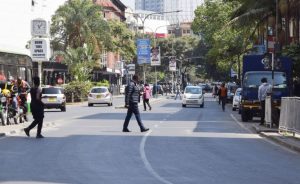Cote d’Ivoire: African Union Court Denies Cote d’Ivoire Opposition Leaders’ Appeals

Gbagbo
The African Union’s human rights court has rejected petitions by former Ivorian president Laurent Gbagbo and former prime minister Guillaume Soro to overturn bans on their running in the country’s upcoming presidential election.
Gbagbo and Soro petitioned the African Court on Human and Peoples’ Rights in 2020, arguing their rights had been violated by the Ivorian justice system, which has barred them from standing in the 25 October presidential election.
The Tanzania-based court ruled Thursday that Gbagbo had provided insufficient evidence to challenge his ban and was not the victim of discriminatory treatment.
It threw out Soro’s case, ruling he had not exhausted his appeals in Cote d’Ivoire.
Gbagbo was the west African country’s leader from 2000 until he was forced from power in 2011 in a bloody civil war that brought current President Alassane Ouattara to power.
Gbagbo, 80, has declared his candidacy for the October poll. While he was acquitted on charges of crimes against humanity by the International Criminal Court, a conviction in Cote d’Ivoire stemming from the violent post-election crisis that ended his rule means he is ineligible to run.
Soro, 53, a former prime minister and one-time rebel leader, was sentenced to life imprisonment in absentia in 2021 on charges of plotting a coup against President Alassane Ouattara. He lives in exile in Niger.
What now for Côte d’Ivoire’s Laurent Gbagbo?
Opposition leaders excluded
Several prominent opposition figures have been excluded from the October election, including Gbagbo, Soro and Tidjane Thiam, leader of the main opposition Democratic Party of Cote d’Ivoire (PDCI).
In 2020, the same court had issued provisional orders ruling both men must be allowed to run in that year’s elections.
Cote d’Ivoire has however withdrawn recognition of the court’s jurisdiction.
Four Côte d’Ivoire opposition figures barred from October presidential election
The African Court was established by member states of the Organization of African Unity (OAU) – the African Union’s predecessor – in 1998. Its mission is to protect human rights and provide an avenue for redress when national judiciaries are unable to dispense justice.
The Protocol establishing the court entered into force on 25 January 2004. While It’s been ratified by 34 Member States, only 8 of them have filed a Declaration by which they accept the competence of the Court to consider applications filed by individuals and NGOs, the court’s website states.
By RFI website.



